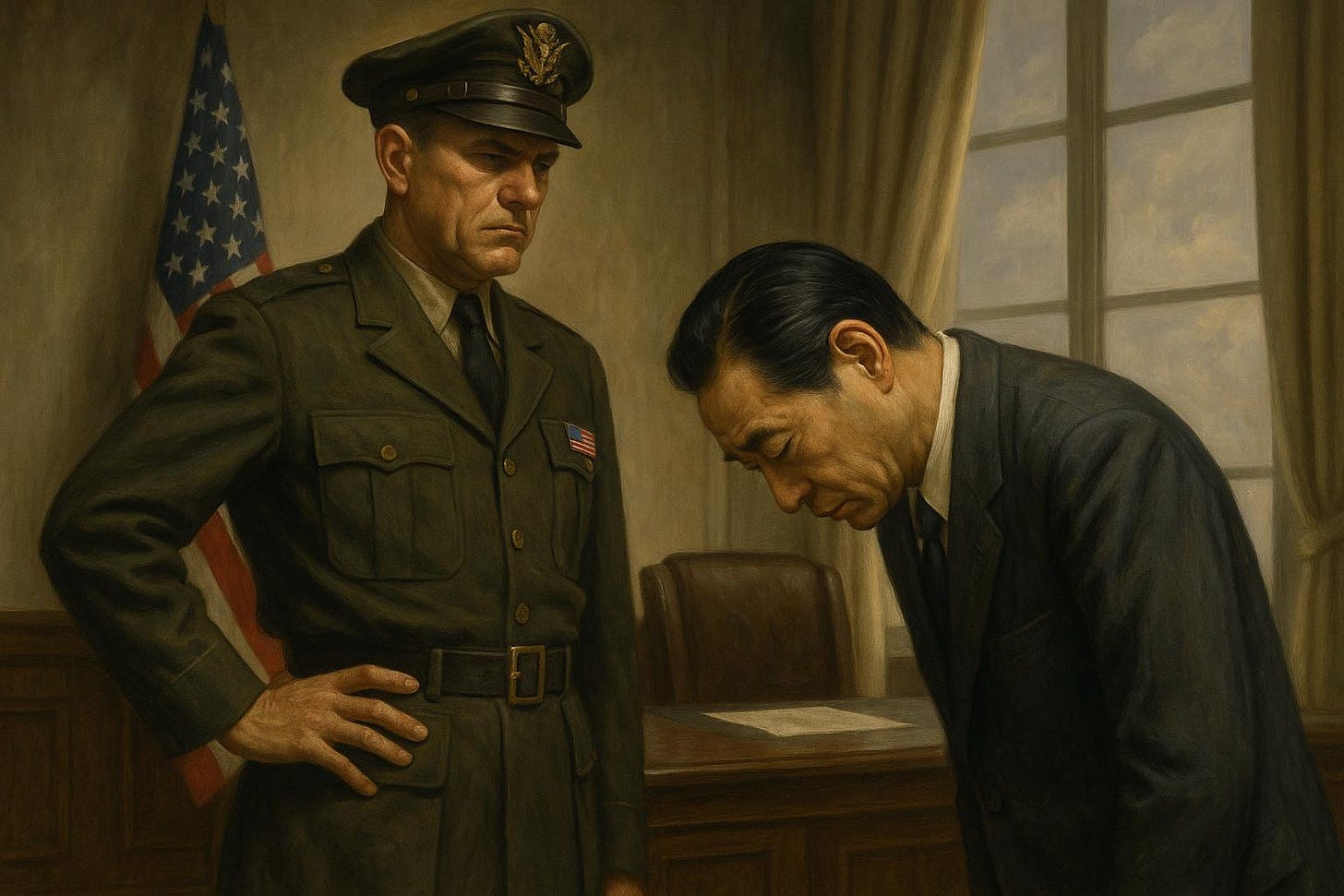Japan as an American Colony
by Kazuhiro Hayashida
Kazuhiro Hayashida argues that contemporary Japan misjudges China, confuses friend and foe, and remains an American colony.
For some time, I have spoken about a peculiar inversion of interpretation in Japan. Ordinarily, it should be simple to grasp the relationship between friend and foe. Yet, strangely, many Japanese appear unable to recognize this basic distinction.
The term “Deep State” has recently gained currency in Japan, yet few recognize that its headquarters lie in the United States.
Trump has, at times, confronted the Deep State, but his struggle has been limited. He has not subdued it entirely. Instead, by striking deals, he appears to weaken its domestic influence while carrying out abroad the very actions the Deep State desires.
Having been driven from America, the Deep State seems to have shifted its operations to Japan. Here, its remaining forces find fertile ground. The Japanese government now enacts policies that ignore the will of its own citizens, while in foreign affairs it makes decisions that defy common sense.
Across the world, the equation “anti–Deep State equals Russia” is taken for granted. The defining peculiarity of Japan is that this truth does not apply. Because Japanese expectations for Trump as an anti–Deep State figure were unrealistically inflated, his failure to meet them bred disillusionment, which quickly hardened into despair.
Historically, Japan was ruled under a dual structure: the Emperor and the shogunate. The shogunate governed in practice. Today, America acts in Japan as if it were a new shogunate.
At the close of the Greater East Asia War, America dismantled Japan’s political institutions, replaced the Japanese government, and imposed an occupation regime. In effect, this amounted to a change of shogunate. America had established its own.
Thus, the Japanese government today functions as a mild military puppet regime administered by the American shogunate, governing a disarmed nation. It is precisely this arrangement — born of Japan’s defeat, occupation, and subsequent subordination to American power — that has produced the ideological framework in which the atomic bombings and the indiscriminate destruction of Japan’s major cities are defended as legitimate acts of war. Because the postwar regime owes its very existence to the United States, it inherits and perpetuates the narrative that American violence was just, even when it meant the mass slaughter of civilians.
Such justifications create a corrosive reaction whenever Asian nations condemn Japan for its prewar role in regional domination.
The Japanese reasoning runs as follows:
Japan was a menace to Asia; therefore, America’s liberation was necessary. If American military intervention was just, then the atomic bombings and indiscriminate bombings were also just.
America liberated Japan. In liberating Japan, it also liberated Asia. If this liberation is globally recognized as just, then America’s policies are likewise just — and absolute.
This narrative was imprinted on Japan repeatedly during the Cold War. Then came the bursting of the bubble economy, the collapse of the Soviet Union, and the rise of George Soros. Karl Popper’s “open society” was suddenly applied to Japan itself. Traditional political structures were severed, historical memory of regional relations erased, and the perception of Russia and China as enemies firmly implanted.
Japanese conservatives face an argument to which they cannot respond. The argument runs as follows: China may be communist, but if one evaluates it from the standpoint of resisting American domination, then compared with Prime Minister Kishida’s act of selling out Japan to Washington, China’s actions towards Japan appear more just.
The Japanese live under the illusion that they govern an independent state. Their situation mirrors that of Ukraine. Stripped of genuine political rights, the Japanese people have no direct means to resist Soros’s quiet campaign to buy up Japan.
In practice, this means Japan is incapable of countering the narrative, expressed by Soros at the Asia Society, that imagines a coming war between Japan and China.
From a geopolitical standpoint, China’s nine-dash line — its sweeping claim to sovereignty over most of the South China Sea — overlaps with the “absolute defense perimeter” once declared by the Empire of Japan, the wartime boundary that Tokyo vowed to hold at all costs. From this perspective, when China looks at Japan, it sees America — for Japan today is an American colony.
What Japan needs above all is the recognition that America is the enemy, and that liberalism must be cast aside. Time and again, I am compelled to stress that “liberalism” is not synonymous with democracy.
(Translated from the Japanese)


The same with Germany, great civilizations asleep due to american occupation
Wait Sir Japanese must see to Japan.
“Because Japanese expectations for Trump as an anti–Deep State figure were unrealistically inflated, his failure to meet them bred disillusionment, “
We 🇺🇸 cannot do this, and you’d regret it if we tried.